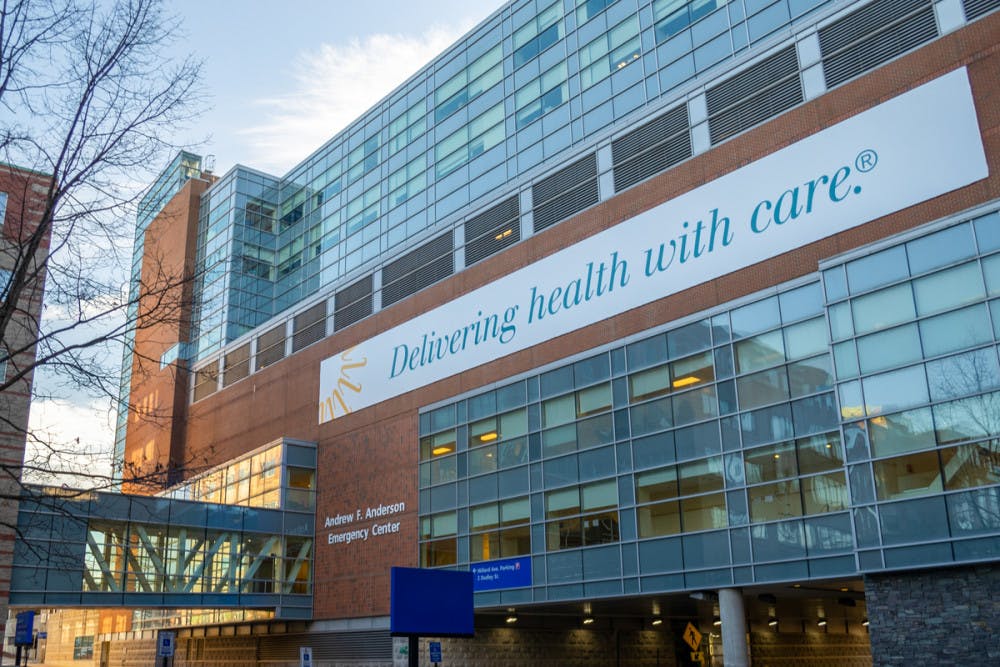Last March, before Rhode Island locked down for the pandemic, a woman with two daughters walked into the Hasbro Adolescent Healthcare Center, where Connect for Health Program Coordinator Hilda Castillo was working.
“The little girls were freezing,” Castillo said. “They were wearing flip-flops and had no winter coats, gloves or scarves.”
Connect for Health, a program run by the Lifespan Community Health Institute, consists of student volunteers to connect patients, like the woman and her children, with medical, community and social services. The program is managed by Castillo and another coordinator, both employed by Lifespan.
Castillo had an interpreter on the phone to speak with the woman, who communicated in Kʼicheʼ, a Mayan language spoken by the people of Guatemala’s central highlands.
From there, Castillo gave the two girls winter clothes that were in the clinic and provided the woman a stipend to purchase shoes and other clothes. Castillo also helped the woman register for benefits through the Supplemental Nutrition Assistance Program.
Student volunteers from the University work not only to address the medical needs of patients that visit the four clinics where Connect for Health operates, but also to help patients fulfill non-medical determinants in health, such as education, food and shelter.
Amid the economic onslaught brought on by the pandemic, which persists in the Ocean State, the woman whom Castillo assisted in March was having trouble paying rent after her husband was left unemployed.
Connect for Health was able to equip the family with legal assistance to avoid eviction, Castillo said, along with helping the woman’s husband find another job.
This woman’s story is not uncommon, Castillo said, and she and her volunteers are currently working with 256 patients — up from a mere 70 at the beginning of 2020. Castillo credits the increase to the demands of the pandemic.
“A lot of our patients are just dealing with … less social support,” said Site Leader Anoop Gurram ’21. “There’s a lot of compounding problems due to rent, food insecurity, dealing with actually getting COVID.”
The unemployment rate in the United States, as of last month, was at 6.3 percent compared to the 3.5 percent prior to the pandemic. In August of last year, Rhode Island had the second-highest unemployment rate in the country.
Before the pandemic, student volunteers would take shifts at Connect for Health’s affiliated clinics and work with patients face-to-face. Now, interactions with clients take place over the phone.
Alongside traditional care like helping patients find food banks or register for SNAP, volunteers also connect clients with online resources like information on COVID-19 testing and voting.
“Without the Brown University students who act as our advocates, we would not be able to do this program,” Castillo said. “They do everything.”
In the future, Gurram predicts that most advocates will work in-person when public health conditions allow. But he said that implementing a hybrid in-person and remote model would provide more flexibility, allowing more students to join Connect for Health and more patients to receive the organization’s aid.
But, Gurram added, remote advocacy work can be difficult to navigate without the ability to troubleshoot problems with colleagues side by side. “When you’re working in person, you have someone at the desk beside you to talk out the problems (and) make sure you’re going the right way,” he said.
New advocate Elisa Kim ‘24 echoed his sentiment. Despite being trained, and ultimately providing her client with useful resources, Kim’s first call was “nerve-wracking.”
Shaan Lalvani ’23 also recognized the potential emotional toll of the job, but he is ultimately looking forward to the work this semester will bring. “It’s a fantastic way to connect with the Providence community, to kind of break away from the Brown bubble, especially in a time like this,” he said.





